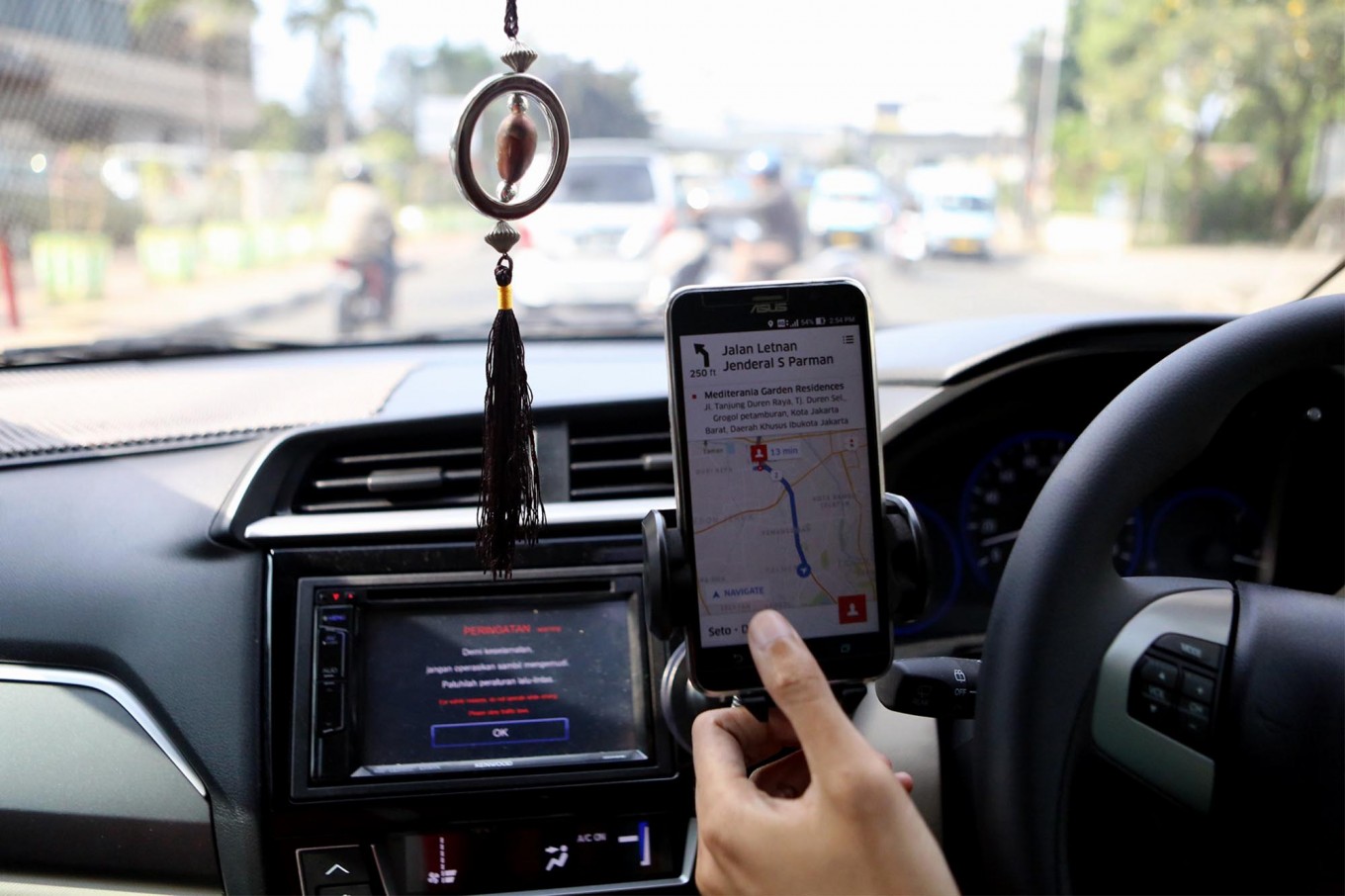Popular Reads
Top Results
Can't find what you're looking for?
View all search resultsPopular Reads
Top Results
Can't find what you're looking for?
View all search resultsEDITORIAL: Passenger protection first
What the government can do is to provide a level playing field for all.
Change text size
Gift Premium Articles
to Anyone
T
here is an old joke about a housewife who cannot stop cursing at a becak (pedicab) driver for his daredevil driving while taking her home. The driver simply replies, “How can you ask for safety, if you only give me a penny?” illustrating the ironclad law of business that you get what you pay for.
That is exactly how the blossoming app-based ridehailing vehicle services work. Customers pay a half or even a third of the normal fares set by conventional taxi operators, but must bear the cost if something happens. Recurring questions include who should be held responsible for the loss of a passenger’s belongings, for an accident or in a legal dispute between driver and passenger.
Conventional taxi operators, at the very least, show their commitment to consumer protection. Inside all taxis are official stickers, placed in a highly visible location, notifying passengers who they should contact if they receive poor services.
To ensure satisfactory services, taxi operators charge passengers a certain minimum fare, which ride-hailing apps do not dare do. The latter takes advantage of the Indonesian consumer’s mindset that ranks price first, while safety is perhaps a distant fourth or fifth.
Maybe the Supreme Court justices were also considering consumer behavior when they annulled 14 points in the Transportation Ministerial Decree No. 26/2017 that aimed to regulate ride-hailing apps in the name of consumer protection.
By scrapping fare floors and ceilings and mandatory roadworthy tests for online taxis, while transferring vehicle ownership certificates from an individual to legal entities, the court has sent the painstaking efforts to rebalance the taxi industry back to square one.
In their consideration, the court said the 14 points ran counter to the Traffic Law and the Micro, Small And Medium-Scale Enterprises Law.
Until the Transportation Ministry comes up with new provisions, consumers can continue indulging in cheap rides at the expense of conventional taxi operators, which have seen their years of market domination face imminent demise at the hands of innovation-driven new players. The impacts of the court ruling will not end there, as the unregulated industry frequently triggered clashes between conventional and online taxi drivers in the recent past.
The government needs to act quickly by amending the ministerial regulation before it is too late. The court ruling has disposed of the role of the state, whilst its presence is pivotal to ensuring that consumer rights are kept intact.
Perhaps one of the lessons the government can take away from the ruling is the unlikelihood of the state controlling the market through price regulations. The market has its own mechanism that follows supply and demand, rather than the government’s will.
What the government can do is to provide a level playing field for all. Free competition will lead to a zero-sum game if the state fails to uphold fair play. The government also needs to educate consumers, so they are aware of all consequences in choosing between conventional and online taxis.










